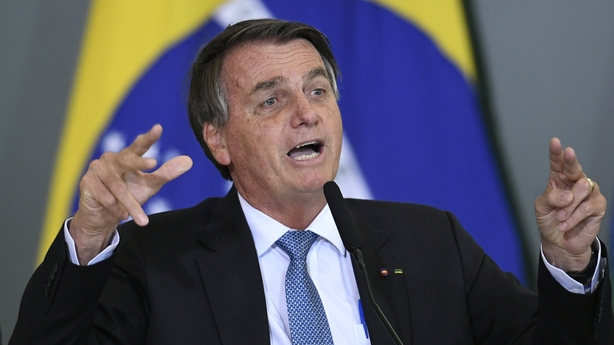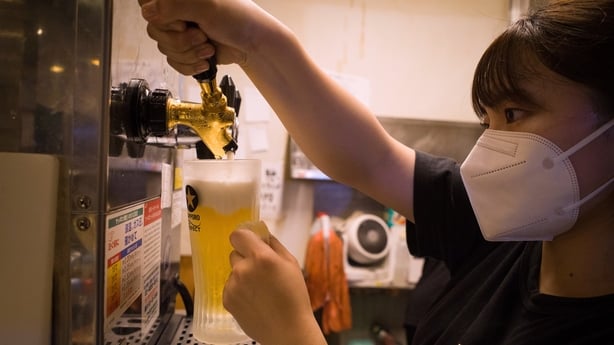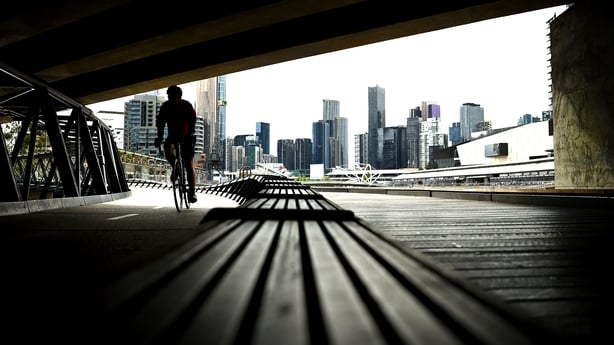The US government has outlined its plan to vaccinate millions of children aged 5 to 11 as soon as the Covid-19 shot is authorised for them, readying doses and preparing locations ahead of the busy holiday season.
Unlike the mass vaccination centres used in the initial vaccine rollout, the White House said it is working to set up clinics in more than 100 children's hospital systems nationwide as well as doctor's offices, pharmacies and potentially schools.
If Pfizer and BioNTech's vaccine wins wider authorisation from the US Food and Drug Administration (FDA), the plan aims to ensure quick and equitable distribution, officials said.
FDA officials are reviewing the Pfizer/BioNTech application seeking authorisation of its two-dose vaccine for younger children, with its panel of outside advisers scheduled to consider it on 26 October. The FDA typically follows the advice of its panel but is not required to do so.
Advisers to the US Centers for Disease Control and Prevention (CDC) will weigh in on recommendations for the vaccine at a meeting on 2 and 3 November, helping to inform a final decision by its director.
"Should the FDA and CDC authorise the vaccine, we will be ready to get shots in arms," White House Covid-19 response coordinator Jeff Zients told reporters, adding that the government had 15 million doses set to ship nationwide, with millions more going out in the weeks to follow.
Once authorised, roughly 28 million more children in the United States would be eligible to receive what would be the first US coronavirus vaccine for younger children. The Pfizer/BioNTech shot is already available to those ages 12-17, and the companies are still studying it for children younger than five.
Mr Zients said the administration had worked with Pfizer to modify the packaging of the paediatric doses to make it easier to administer to children, including providing smaller needles.
CDC Director Dr. Rochelle Walensky told reporters that the agency would continue to recommend mask wearing in schools even as the vaccine is rolled out for children.
Dr Walensky said the seven-day average of Covid-19 cases in the US was down about 16% to some 75,500 cases per day. The seven-day average for hospitalisations had decreased about 11% to around 6,000 per day, and the seven-day average for daily deaths was down about 3% to 1,200.
Israel reports subvariant of Delta coronavirus strain
Israel has confirmed a case of a subvariant of the Delta strain of the coronavirus previously reported in some European countries, the health ministry said.
"The variant AY 4.2. that has been discovered in a number of countries in Europe has been identified in Israel," a ministry statement said.
An 11-year-old boy arriving from Europe was the carrier, the ministry said, adding that the case was identified at Ben Gurion airport in Tel Aviv.
The boy was quarantined and no further contacts have been discovered, the ministry said.
The AY 4.2. variant has turned up several times in the UK.
Francois Balloux, professor of computational systems biology at University College London, said that the subvariant is rare and does not appear to pose the same risk of significantly increased transmission as other strains.
The variant was discovered as Israel considers loosening restrictions on tourism following a drop in cases.
An earlier plan to reopen the borders foundered amid a rise in cases driven by the Delta strain.
In late August and early September, new cases topped 11,000 a day.
Authorities launched an aggressive campaign to inoculate citizens with a third, booster shot of the Pfizer-BioNTech vaccine, which drove down infections.
Today, authorities reported 1,487 new cases over the previous 24 hours.
Bolsonaro to face charge of 'intentional' Covid-19 crimes
A Brazilian senate committee will ask that President Jair Bolsonaro be charged with "intentional" crimes over his management of the Covid-19 pandemic, which has left 600,000 people in Brazil dead.
Following six months of hearings, with emotional witness statements and revelations about the use of ineffective medication on "human guinea pigs," the committee of inquiry will deliver its eagerly awaited report.
Lead author of the 1,200-page report Renan Calheiros has already revealed that he has retained at least nine charges against the far-right president, including "quackery" and "crimes against humanity."
But he announced a last-minute withdrawal of "homicide" and "genocide" charges, after some infighting within the panel.

While the accusations are serious, the process may be just symbolic since Mr Bolsonaro enjoys enough congressional support to avoid the opening of impeachment proceedings.
Likewise, Attorney General Augusto Aras, an ally appointed by the president, could shield him from any indictment.
The report could also ask that several ministers be charged, as well as three of Mr Bolsonaro's sons, including Flavio - who sits on the committee.
"This report will seem like a sentence, but the government is calm. You can criticise the president's attitude, but not incriminate him," Fernando Bezerra, head of the government's parliamentary bloc in the senate said.
The inquiry does not have the power to bring charges, but its revelations could have a serious political impact: the report will be sent to the public prosecutor, the federal court of accounts, and could even be sent to the International Criminal Court in the Hague, where other complaints against Mr Bolsonaro have already been lodged.
It is yet another headache for the president, whose popularity has plummeted to an all-time low and who trails leftist former leader Luiz Inacio Lula da Silva in polls ahead of next year's general election.
The president rejected the accusations brought against him.
"We know that we are guilty of absolutely nothing. We know that we did the right thing from the first moment," said Mr Bolsonaro in response to the committee recommendation.
Tokyo aims to lift curbs on restaurants as cases fall - report
The Tokyo Metropolitan Government is aiming to ease Covid-19 restrictions on bars and restaurants next week as infections continue to decline, the Jiji news service said.
The easing will be announced as early as tomorrow and would apply to businesses that are certified as following anti-infection measures, Jiji reported, citing informed sources.
Tokyo and much of Japan lifted Covid-19 emergency measures on 1 October that had been in place for almost six months. Even so, restaurants and bars in the capital have been asked to halt alcohol sales by 8pm and close by 9pm.

New daily cases in Tokyo dropped to 29 on Monday, the lowest since June last year. Infections have fallen dramatically from a wave of more than 5,000 a day in August that hammered the capital's medical infrastructure.
Some 67% of Japan's population is now fully vaccinated, and the government is planning to roll out booster shots this winter.
At the same time, authorities are planning to use a combination of vaccination certificates and Covid-19 tests to further ease curbs and reopen the economy.
Melbourne welcomes vaccinated Sydney residents
Travel restrictions between Sydney and Melbourne, Australia's largest cities, have eased as Victoria opened its borders to fully vaccinated residents from New South Wales amid a rapid rise in immunisation levels.
With cases trending lower in New South Wales, including Sydney, residents will be allowed quarantine-free entry into Victoria for the first time in more than three months.
Travellers from Melbourne who wish to enter Sydney, however, must undergo a two-week home quarantine.
Daily infections in Victoria rose to 1,841 today, up from 1,749 a day earlier. A total of 283 cases were reported in New South Wales, well down from the pandemic high in September.
The relaxation in border rules comes ahead of Victoria lifting the lockdown in Melbourne, the state capital, on Friday as double-dose vaccination rates in people above 16 neared 70%.
More restrictions will be eased when rates pass 80% and 90%.

By Friday, Melbourne's 5 million residents would have endured six lockdowns totalling a cumulative 262 days since March 2020. Australian media say this is the longest in the world, exceeding a 234-day lockdown in Buenos Aires.
Australia had enjoyed a Covid-free life most of this year until a Delta outbreak began in Sydney in June, which quickly spread to neighbouring Victoria. Other states are COVID-free or have very few cases.
Sydney and Canberra exited their months-long strict stay-home restrictions last week after racing through their vaccination targets.
Even with the Delta outbreaks, Australia's Covid-19 numbers are far lower than many developed nations, with about 149,000 cases and 1,577 deaths.
€120m from Gates Foundation for poor nations to get Covid drug
The Gates Foundation will allocate up to $120 million to help lower-income countries get an experimental Covid-19 drug being developed by US drugmaker Merck in the battle against coronavirus.
The money will support efforts to develop and make generic versions of what could become the first oral antiviral medication for the disease if it wins regulatory approval, the foundation said in a statement.
"Today's commitment will ensure that more people in more countries get access to the promising drug molnupiravir, but it's not the end of the story - we need other donors, including foundations and governments, to act," Co-Chair Melinda French Gates said.
Merck is developing the antiviral pill along with partner Ridgeback Biotherapeutics, to treat coronavirus infections that range from mild to moderate in severity and sought US emergency use authorisation for the drug this month.

